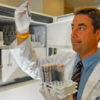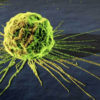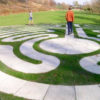Scientists say they have identified a compound that dramatically bolsters learning and memory when given to mice with a Down syndrome-like condition. Given on the day of birth, the single-dose treatment appears to enable the cerebellum of the rodents’ brains to grow to a normal size. Reporting their findings in Science Translational Medicine, the scientists […]










